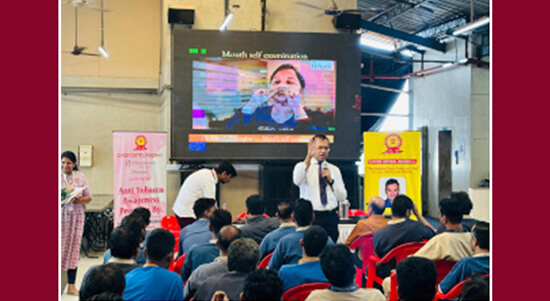How Stress and Sleep Deprivation Affect Cancer Risk ?

Usually, when people consider cancer risk factors, they think about health and lifestyle factors, like chronic smoking or tobacco use, exercise and diet and so on. But chronic stress and sleep deprivation are two other variables that can affect biological mechanisms relative to cancer risk and advancement.
Many studies provide indications that chronic stress will create biological environments that may elicit tumor growth and metastasis; however, stress is not a direct cause of cancer.
Immune Function: Chronic stress can lead to chronic immune system suppression and decreased activity of immune cells such as natural killer (NK) cells. NK cells are essential in identifying and terminating aberrant cells. (Source: Nature Reviews Cancer)
Inflammation: Chronic inflammation is also associated with cancer initiation and metastasis and is linked to the chronic elevation of stress hormones (e.g. cortisol and epinephrine).
Tumor Growth and Metastasis: Stress-induced signaling promotes Angiogenesis, the establishment of blood vessels to supply adequate oxygen and sufficient nutrition to tumors. Stress also facilitates metastasis, the development of cancerous cells in new and distant sites. (Source: Nature Medicine)
Cancers and Behavioral Pathways: Stress also might lead to behavioral pathways that can be associated with cancer which include smoking, alcohol and drug use, poor diet, and physical inactivity.
The Role of Sleep in Cancer Risk
Sleep is essential for immune system performance, hormone regulation, and cellular repair. Disturbed or insufficient sleep has been linked to a higher cancer risk.
Cell Repair and DNA Protection: DNA damage accumulated throughout the day is repaired during deep sleep, where the body's ability to repair genetic damage declines with chronic sleep debt and increases the risk of mutation.
Hormonal Regulation: Sleep is known to have an important role in melatonin synthesis, which has known anti-cancer effects and antioxidant capabilities. Low melatonin levels have been linked to both breast and prostate tumors and insufficient sleep and light exposure at night.
Immune System Function: Sleep enhances the immune system’s ability to diagnose and eliminate cancer cells. Sleep deprivation decreases this assessment process and renders the body more vulnerable.
Stress and Sleep: A Dangerous Cycle
Sleep and stress have a complicated relationship, as not getting enough sleep leads to an increase in stress levels, while chronic stress can lead to insomnia or very few hours of sleep. The continuous cycle starts the process of systemic inflammation leading to communication issues, immune system, and hormone regulation all which can develop and advance cancer spread.
Methods for Mitigating Risk:
Mind-Body Interventions: Mindful meditation, yoga, and tai chi facilitate reductions in stress and can improve sleep quality in cancer patients and survivors.
Routine Sleep: Trying to sleep and wake at the same time every day is also an effective solution, because it helps regulate your circadian rhythms.
Managing Light and Stimulants: Limiting caffeine consumption and screen exposure supports natural melatonin synthesis and improve overall sleep quality.
Working Out: Working out provides a reduction in the risk of cancer as well as a reduction in stress, and aids sleep.
Social Support and Therapy: Cognitive Behavioral Therapy for Insomnia can reduce stress, and improve sleep quality.
While sleep deprivation and stress may not directly cause cancer, they are factors with significant impact on the biological conditions under which cancer survives and spreads. Subsequently, people who lower levels of stress and prioritize quality sleep, are more likely to achieve improvements in immune health, hormonal homeostasis, and possibly, lower risk for cancer, in the long run.
Feel free to share this blog with friends and family – after all, the more we know, the stronger we become.